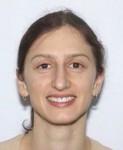 What knowledge defines a native speaker of a language? What happens when this level of knowledge is not reached? One type of bilingual speakers presents an unparalleled opportunity to study these questions: heritage speakers. Heritage speakers are adults who have incompletely learned their first language because of a switch to another dominant language. This is an extremely important demographic on college campuses – a third of American college students are heritage speakers. They are also an under-appreciated resource, since they possess linguistic and cultural expertise that far exceeds the level achieved by second-language learners of these languages, even after 4-5 years of study. Yet, the inherently variable level of mastery of the heritage language, and enormous differences between the heritage learners and the second-language learners make this population particularly challenging for language instructors. I will discuss the heritage languages spoken in the US, and present some recent studies of the heritage speakers’ knowledge and use of their home languages. I will argue that this knowledge is deeply systematic, and discuss the differences between this system and the fully-learned language, and the role that the dominant language plays in shaping these differences.
What knowledge defines a native speaker of a language? What happens when this level of knowledge is not reached? One type of bilingual speakers presents an unparalleled opportunity to study these questions: heritage speakers. Heritage speakers are adults who have incompletely learned their first language because of a switch to another dominant language. This is an extremely important demographic on college campuses – a third of American college students are heritage speakers. They are also an under-appreciated resource, since they possess linguistic and cultural expertise that far exceeds the level achieved by second-language learners of these languages, even after 4-5 years of study. Yet, the inherently variable level of mastery of the heritage language, and enormous differences between the heritage learners and the second-language learners make this population particularly challenging for language instructors. I will discuss the heritage languages spoken in the US, and present some recent studies of the heritage speakers’ knowledge and use of their home languages. I will argue that this knowledge is deeply systematic, and discuss the differences between this system and the fully-learned language, and the role that the dominant language plays in shaping these differences.
Prof. Sophia Malamud will be visiting the Williams College on April 20. Prof. Malamud teaches linguistics at Brandeis University and has published extensively on semantics and pragmatics, using data from English, Russian, German, Italian, French, Amharic, and Yiddish. For this colloquium, Dr. Malamud will be presenting her work-in-progress on language acquisition and attrition, and in particular, heritage language knowledge.
Students and faculty/staff are invited.
Noon – 1:30PM in Hollander 241
Lunch will be provided so if you think you’ll be coming, please RSVP.